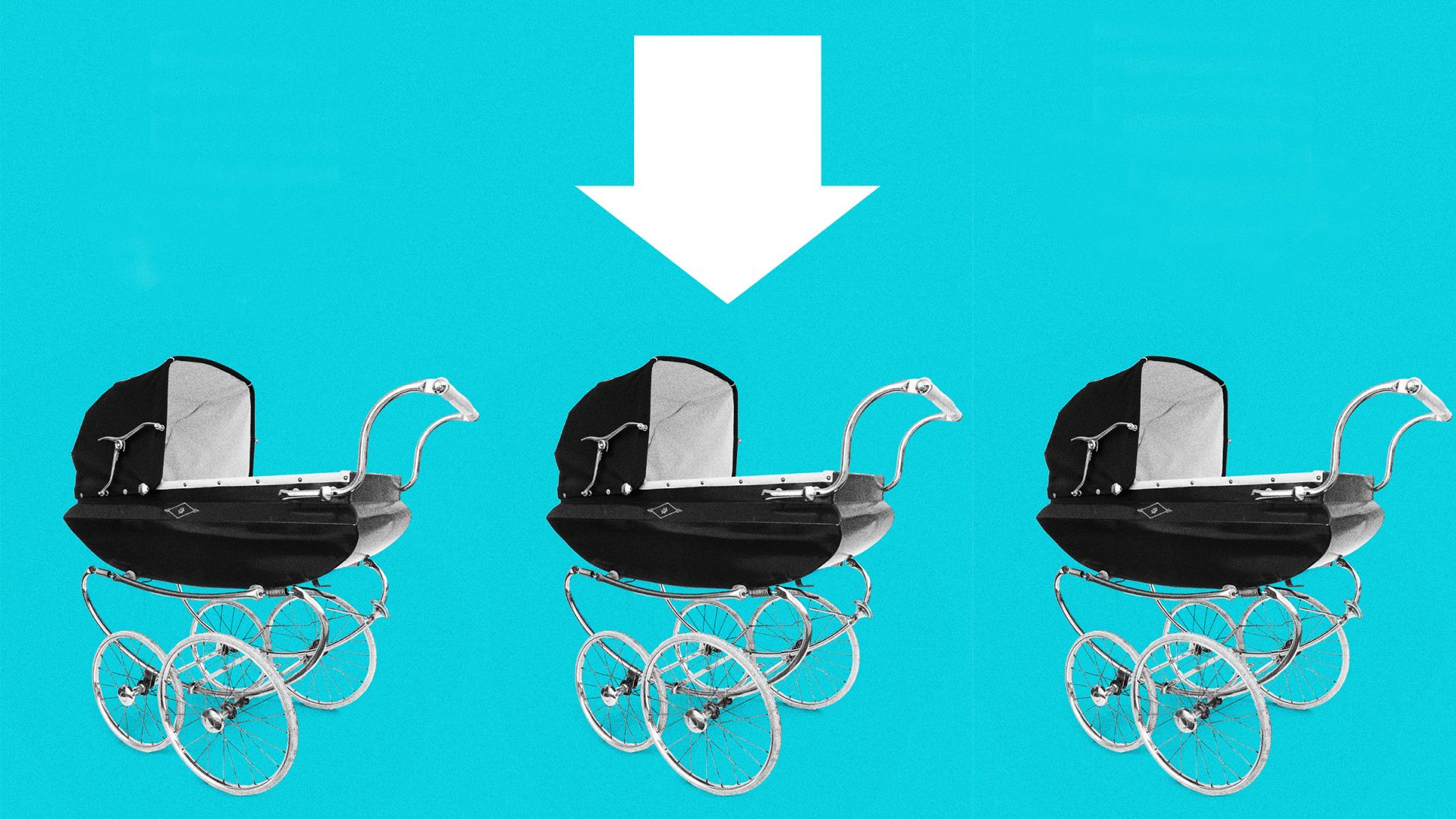Politics is a strange beast. For months, Labour and the Conservatives seem to have been battling it out to show voters which party could come closest to Reform on immigration, tacking wildly to the right in the process – and watching their poll ratings continue to tumble despite their best efforts.
And yet even as the two major parties crossed the political ground on to his home turf, Nigel Farage did something completely different: he publicly adopted one of the most left wing stances of his political career, coming out to endorse ending the two-child benefit cap.
Make no mistake, this is a positive development: ending the two-child cap would do more than any other policy change to end child poverty, lifting around 500,000 children above the poverty line virtually overnight. The timing may have been coincidental, but just as Farage gave his support to ending the child benefit cap, the government finally signalled it would U-turn on this and do so later this year. No matter how this may have come about, it is unequivocally good.
But while it is universally supported by children’s charities and policy experts, ending the two-child benefit cap doesn’t poll particularly well – and nor is it a natural fit for Farage, a right-leaning, tax-cutting small state guy who typically enjoys railing against supposed “welfare queens” getting rich off the taxpayer.
It might seem like Farage has had a Damascene conversion, or is playing the part of Scrooge after the ghosts have done their work – but a better answer as to what is going on might lie in the other policy Reform unveiled as Farage endorsed an end to the benefit cap. Reform, he said, would introduce a major tax break for married couples, which would particularly benefit single-earner households, typically with one parent staying home to raise children.
Taken together, the two policies amount to a cautious embrace of a global movement known as nativism or sometimes natalism – at its simplest level, the idea that politicians should encourage the “native” population to have more children. Sometimes this is framed in simple demographic terms: economic growth, adult social care, and more, all rely on there being enough people in the future to do the work.
Countries where birth rates are very low, such as Japan or (as a result of a long-standing one-child policy) China are having to deal with it as a demographic crisis. But the nativist movement is also steeped in anti-immigration sentiment. If a country isn’t producing enough people to do essential jobs, one solution is to import such people through immigration. Some nativists simply dislike immigration, while others oppose these on explicitly racial or racist terms: “you will not replace us” is a war cry of this movement born out of the US far right, but now heard across Europe, too.
Suggested Reading


For the self-employed, parenting feels impossible
This is what the populist right’s intellectuals, like Matt Goodwin, tap into and legitimise. Last week, Goodwin published “research” suggesting that the white British population of the UK was in decline, and would be overtaken by Muslims by the end of the century. Academics demolished the research on social media – not least because Goodwin’s peculiar definition of “white British” would include neither Winston Churchill nor King Charles III – but it got widespread coverage nonetheless.
The idea of a deliberate plot by “global elites” to change the demographics of Europe – replacing white Europeans with specifically Muslim immigrants – is known as The Great Replacement, and originated with the French novelist Renaud Camus, now an icon of the global far right movement, who was visited at his chateau by the US far right tech guru Curtis Yarvin.
Drawing a line between Camus and Farage is not too complicated: Goodwin interviewed Camus on his GB News show, and spoke out in his defence when he was barred from entering the UK in April this year. Given Goodwin’s ties to Farage and his movement, the line is a short one between the two.
Reform’s early embrace of nativism would put it squarely in line with what is, perhaps ironically, a global movement with Europe at its forefront. Viktor Orbán’s Hungary has taken these policies further than anywhere, claiming to spend more than 5% of GDP on “family support schemes” – including a lifetime exemption from income tax for mothers with four children or more, a tax break for mothers under 30, and loans of €30,000 which are forgiven if women have enough children. Orbán explicitly endorses Camus’s great replacement theory as a rationale for his policy.
Other European leaders are following suit. Giorgia Meloni’s Italian government has a Ministry for Birth Rate, which has introduced a baby bonus scheme of €1,000 for each baby born or adopted in 2025. There are also policies introducing tax breaks for mothers and free childcare for larger families. In Poland, the Law and Justice government (until it was voted out in 2023) adopted a similar stance of financial incentives for large families, while also trying to limit immigration.
But the movement extends well beyond Europe. Russia, unsurprisingly, champions nativism as part of its framing of support for traditional values against supposed “western” ones, like supporting LGBT rights. These policies have been long-standing, including grants for families with new babies and subsidised housing for large families, but both the policies and the nativist rhetoric have amped up since the invasion of Ukraine. Russia has now banned “child-free propaganda” and now offers financial incentives to university-age women to encourage childbirth.
Suggested Reading

It is time for anti-populism
Israel’s far right governing coalition is also turning to nativist policies to address the country’s unique demographic circumstances. Israel was founded as an explicitly Jewish nation, but its Jewish population has been growing far more slowly than the population of non-Jewish citizens, including Christians and a large Muslim minority.
The prospect of Jews becoming a minority in what is supposed to be an explicitly Jewish state would be challenging for any Israeli government, but the ultra-nationalists currently in power see it as an existential threat – and so have thrown billions to ultra-orthodox groups, who conveniently double as their most fervent supporters.
In recent years, even India, which has spent decades encouraging its people to have smaller families and fewer children, has reversed course and embraced nativism, yet again as part of a nationalist and nativist project. Officials from Narendra Modi’s ruling BJP explicitly talk about the higher birth rate of India’s Muslims, versus its Hindus, as a challenge to the country and its demographics, while trying to encourage Hindus to have bigger families. India’s government is yet to offer the explicit financial subsidies richer countries have offered for those having large families, but its rhetoric is shifting in a similar direction.
These are very different countries and governments, in very different places, but they are all embracing a movement with very similar characteristics. There is also a glaring commonality across every country.
Islamophobia is central to the idea of nativism. Its embedded premise is that each country’s “native” population has to have more children, or else they will be outbred by Muslims – a story that used to be told of different ethnic or religious groups (such as Irish Catholics), but which now has a shared villain.
It is a dehumanising and conspiratorial rationale which should not be forgotten when considering individual policies which seem, and often actually are, entirely reasonable. There are legitimate reasons to be concerned by low birth rates, and to want government to support families, but that cannot be used as a reason to ignore the latent Islamophobia of the global nativist movement.
This is the world into which Nigel Farage is now dipping his toe, and throwing out some of his most long-standing political positions with it. Farage’s innate politics are libertarian: he would prefer to replace the NHS with a social insurance system, and would rather cut taxes than raise benefits. Now he’s in with a shot of power, though, he is throwing that out to embrace what he thinks his populist base wants.
It is surely more than a coincidence that Reform’s embrace of nativism comes right alongside its most obvious internal fight over Islamophobia. The farcical row was started when new MP Sarah Pochin asked Keir Starmer about a burqa ban at Prime Minister’s Questions. Chairman Zia Yusuf called the question “dumb” because, he said, Reform doesn’t support such a policy, only to quit the party the same day. Two days later, Yusuf rejoined the party (though not as chair) and reversed his previous position, saying he wouldn’t oppose such a ban if Reform introduced it.
Farage is walking a fine line with Reform. He is trying to be the populist alternative to two unpopular mainstream parties, while staying differentiated from the UK’s far right, as embodied by Tommy Robinson. Reform’s prospects of huge donations from Elon Musk seemed to evaporate when Musk publicly condemned him for not supporting Robinson, but Farage held the line, not least because to embrace the open racism of the far right would limit his electoral prospects.
Farage’s calculus appears to be that he can embrace nativism and fend off the threat from his right flank while also retaining the plausible deniability that keeps him in the mainstream – pointing at individual policies and the UK’s demographic challenges to justify himself. It is not a trick that should be allowed to work: behind the slick talk of supporting families is a dark subtext about which families are, and are not welcome.
The nativist movement is on the rise across the world. Somewhere, politicians are going to have to find the courage to start calling it out.




